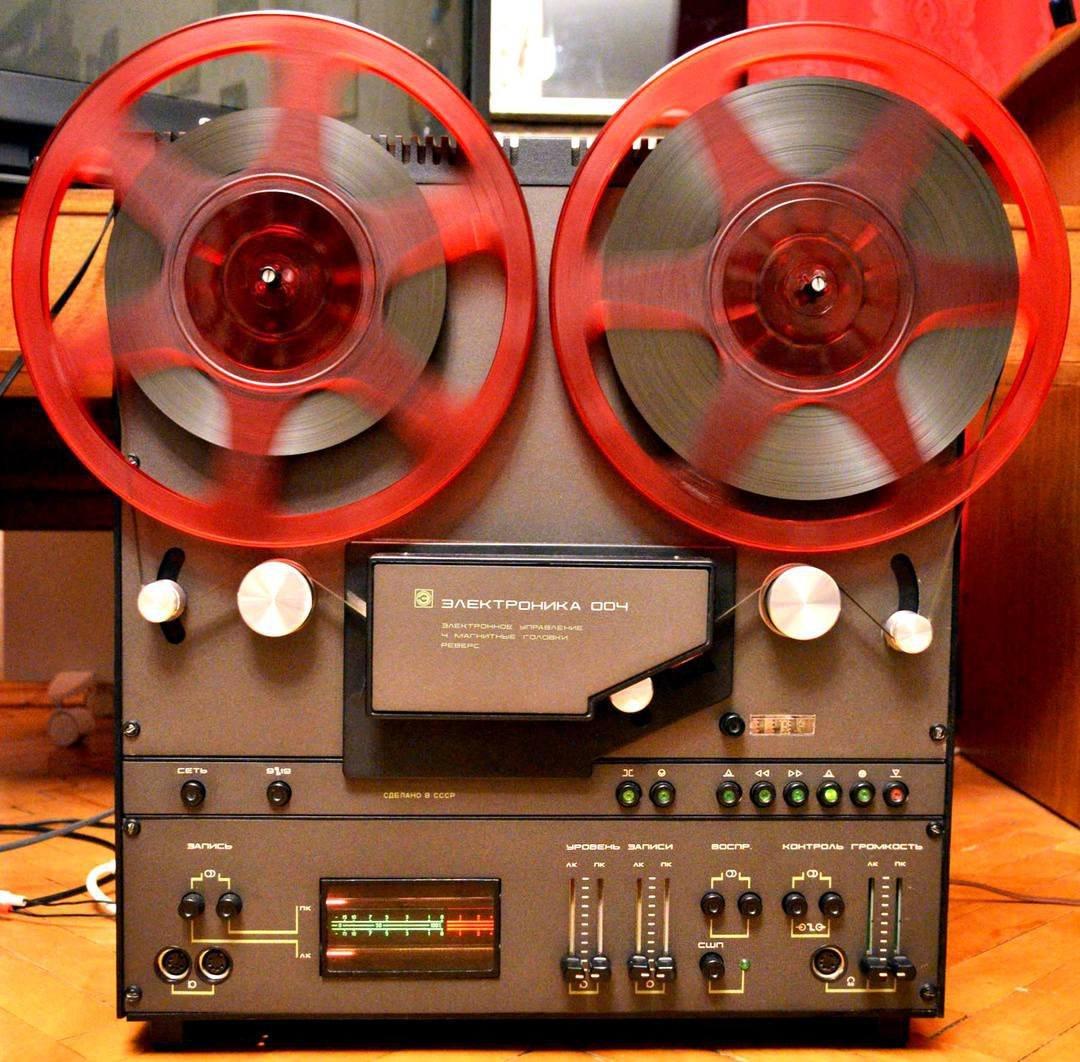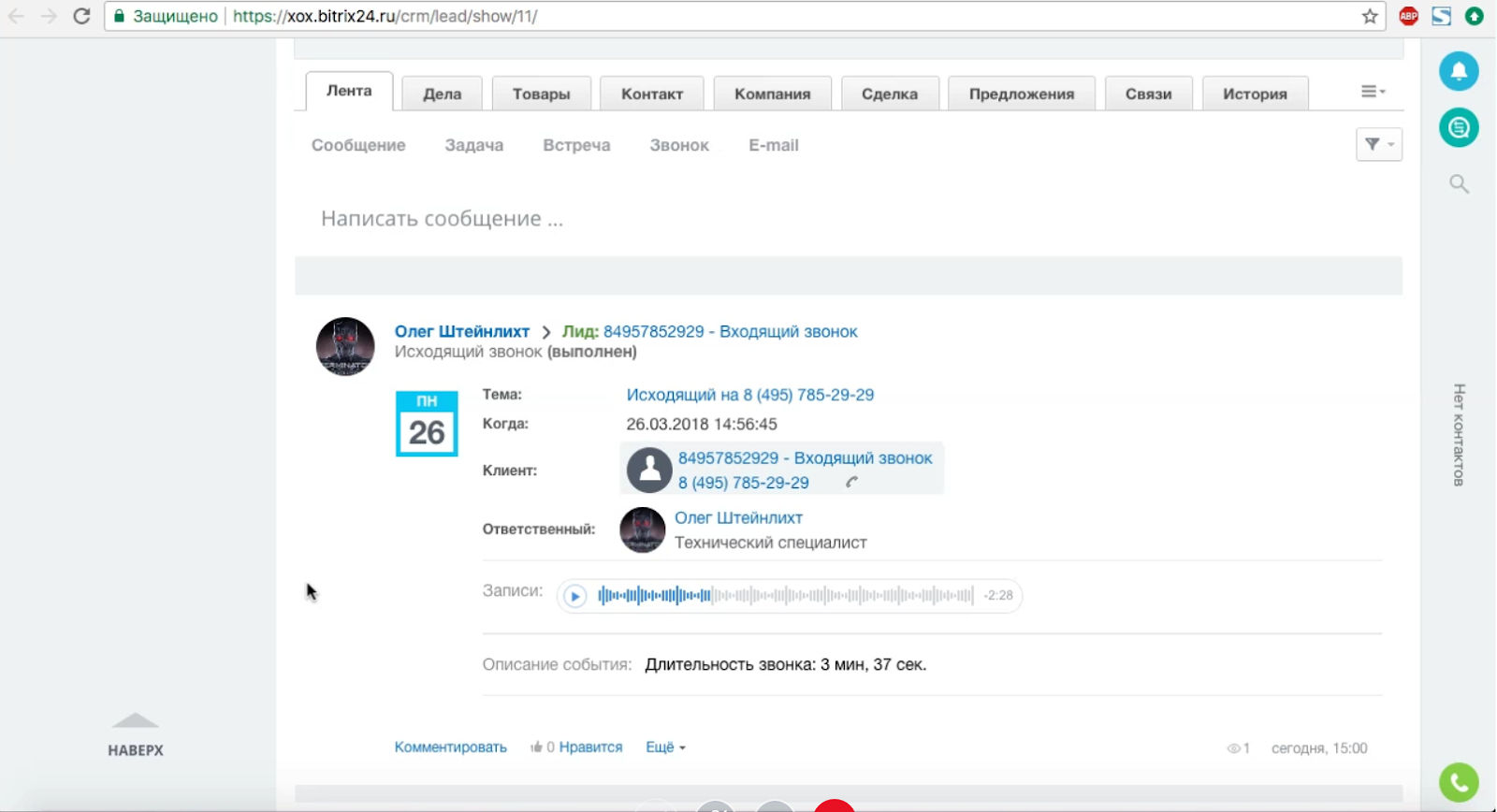Divide and conquer: demarcation of access to the records of conversations
Call recording can be used for a variety of purposes - from controlling the quality of service to “tuning” sales processes. Today we will talk about the role of records in the company's business and about organizing access to them.

Some people think that only spies, hackers and the Pentagon need to record the conversation. However, in practice, writing is a very useful business tool.
When is recording really needed in the daily activities of companies? Usually when there is a communication of the Buyer and the Seller. Their interaction can be long and very complex. In telephone conversations, the buyer expresses his demands, wishes and interests, and the seller is looking for an opportunity to offer his product or service. When some time has passed, and you have already forgotten what you agreed with the customer. Also for additional and cross-sales, having a conversation recording can help. The record allows you to log agreements between the parties. Most of the benefits of a recorded conversation will be if you organize its binding to CRM, and you can listen to the recording directly from the client’s card and / or from the order card.
')
As a rule, you can listen to the recording directly in the interface, download, send to mail, convert to a compressed format (for example, converting to MP3 format saves space up to 5 times! This is important for CRM with a built-in virtual disk), as well as set up automatic deletion and / or archiving.
As mentioned above, it is very convenient if there is direct access to the records of conversations in transaction cards or in customer cards. For example, due to integration with amoCRM, the recording of conversations with the IP PBX Zeon looks like this:

In Bitrix24, it looks like this:

And in the Zeon IP PBX it looks like this:

The users of the call recording system may have different roles, for example:
However, in order to avoid abuse, access to records can be controlled. If you are working with a professional PBX (virtual PBX) or IP-PBX, it is not difficult, because systems such as the IP-PBX Zeon allow you to restrict supervisor access, to record listening to records by administrators (administrator as a doctor - you either trust him or not ), and also prohibit ordinary users to listen to the recording, except for their own.
I would like to note that in modern PBXs there are two different functions: eavesdropping-prompting (trainee assistance) in real time and listening to the recording of a conversation from the archive of records, linked to a call.
IP PBX Zeon allows you to differentiate the level of access between supervisors. The supervisor can manage only those queues to which he has access. This also applies to eavesdropping. In other PBXs, this function is often “afraid” to use precisely because of unlimited access.
Practice shows that the hierarchical access system works most effectively: the head of the department can listen to (or download) the recording of any employee, the supervisor can work with the records of his department only, and each employee can listen only to his own records.
In Russia, the mystery of telephone conversations is protected by article 138 of the criminal code of the Russian Federation. In short, it only deals with listening to other people's phone conversations, as well as disclosing their content without the consent of the citizens or the court’s permission ( link to the article ).
Regards, iptelefon.su team
Information about IP PBX Zeon

Some people think that only spies, hackers and the Pentagon need to record the conversation. However, in practice, writing is a very useful business tool.
When is recording really needed in the daily activities of companies? Usually when there is a communication of the Buyer and the Seller. Their interaction can be long and very complex. In telephone conversations, the buyer expresses his demands, wishes and interests, and the seller is looking for an opportunity to offer his product or service. When some time has passed, and you have already forgotten what you agreed with the customer. Also for additional and cross-sales, having a conversation recording can help. The record allows you to log agreements between the parties. Most of the benefits of a recorded conversation will be if you organize its binding to CRM, and you can listen to the recording directly from the client’s card and / or from the order card.
')
What can you do with conversation recordings?
As a rule, you can listen to the recording directly in the interface, download, send to mail, convert to a compressed format (for example, converting to MP3 format saves space up to 5 times! This is important for CRM with a built-in virtual disk), as well as set up automatic deletion and / or archiving.
As mentioned above, it is very convenient if there is direct access to the records of conversations in transaction cards or in customer cards. For example, due to integration with amoCRM, the recording of conversations with the IP PBX Zeon looks like this:

In Bitrix24, it looks like this:

And in the Zeon IP PBX it looks like this:

Business tasks and access rights
The users of the call recording system may have different roles, for example:
- The sales manager can listen to the recording to remember what the contract with the client was about and at what stage the questions arose. This is especially true if one manager started a deal and brings another (rarely, but such cases are);
- Supervisors can use recordings when they receive complaints or complaints from customers. After listening to the recording of a real conversation, they are given the opportunity to give a reasoned answer or chide the sales manager in case of his error;
- Heads of departments often use selective tapping of records to control the culture of communication with the client and its compliance with the rules adopted in the company;
- Coaches and coaches prefer real conversations for training beginners and interns. Here are suitable records of successful transactions, so to speak, "exemplary", as well as problem cases and situations.
However, in order to avoid abuse, access to records can be controlled. If you are working with a professional PBX (virtual PBX) or IP-PBX, it is not difficult, because systems such as the IP-PBX Zeon allow you to restrict supervisor access, to record listening to records by administrators (administrator as a doctor - you either trust him or not ), and also prohibit ordinary users to listen to the recording, except for their own.
I would like to note that in modern PBXs there are two different functions: eavesdropping-prompting (trainee assistance) in real time and listening to the recording of a conversation from the archive of records, linked to a call.
IP PBX Zeon allows you to differentiate the level of access between supervisors. The supervisor can manage only those queues to which he has access. This also applies to eavesdropping. In other PBXs, this function is often “afraid” to use precisely because of unlimited access.
Access hierarchy
Practice shows that the hierarchical access system works most effectively: the head of the department can listen to (or download) the recording of any employee, the supervisor can work with the records of his department only, and each employee can listen only to his own records.
Is it even legal?
In Russia, the mystery of telephone conversations is protected by article 138 of the criminal code of the Russian Federation. In short, it only deals with listening to other people's phone conversations, as well as disclosing their content without the consent of the citizens or the court’s permission ( link to the article ).
WE STRONGLY RECOMMEND TO CALL THE CLIENT ABOUT RECORDING WHEN RECEIVING A CALLHow do business recordings help you? Write in the comments.
Regards, iptelefon.su team
Information about IP PBX Zeon
Source: https://habr.com/ru/post/352190/
All Articles